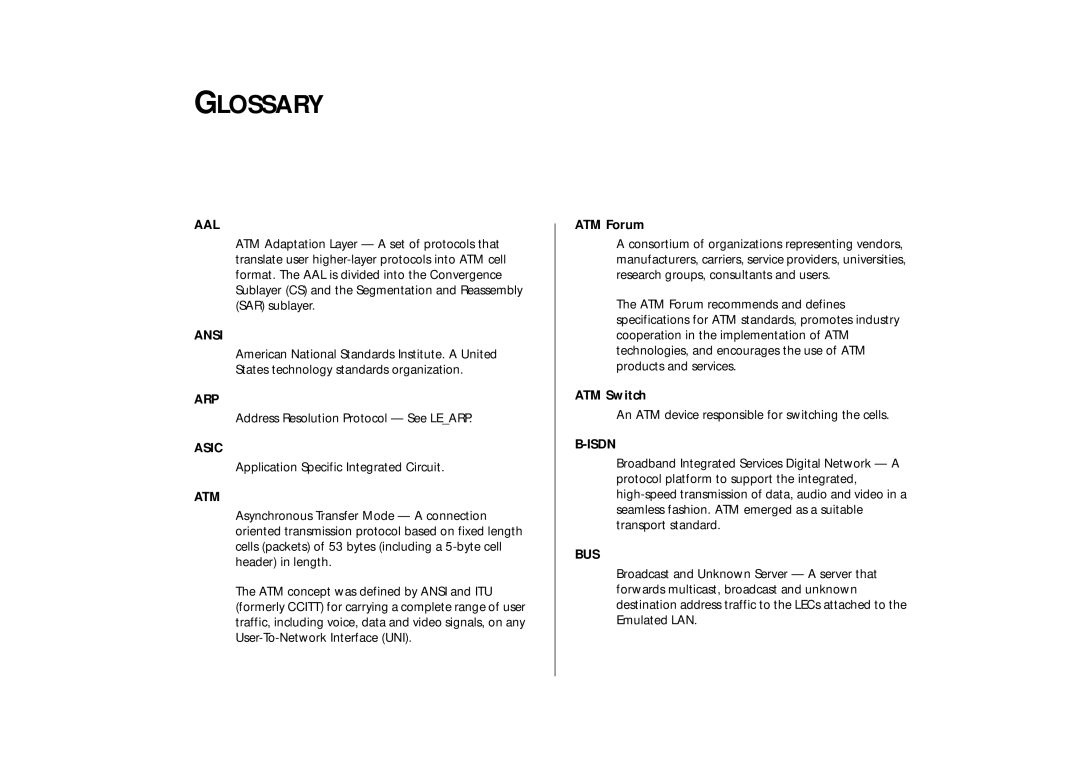
GLOSSARY
AAL
ATM Adaptation Layer — A set of protocols that translate user
ANSI
American National Standards Institute. A United States technology standards organization.
ARP
Address Resolution Protocol — See LE_ARP.
ASIC
Application Specific Integrated Circuit.
ATM
Asynchronous Transfer Mode — A connection oriented transmission protocol based on fixed length cells (packets) of 53 bytes (including a
The ATM concept was defined by ANSI and ITU (formerly CCITT) for carrying a complete range of user traffic, including voice, data and video signals, on any
ATM Forum
A consortium of organizations representing vendors, manufacturers, carriers, service providers, universities, research groups, consultants and users.
The ATM Forum recommends and defines specifications for ATM standards, promotes industry cooperation in the implementation of ATM technologies, and encourages the use of ATM products and services.
ATM Switch
An ATM device responsible for switching the cells.
B-ISDN
Broadband Integrated Services Digital Network — A protocol platform to support the integrated,
BUS
Broadcast and Unknown Server — A server that forwards multicast, broadcast and unknown destination address traffic to the LECs attached to the Emulated LAN.
